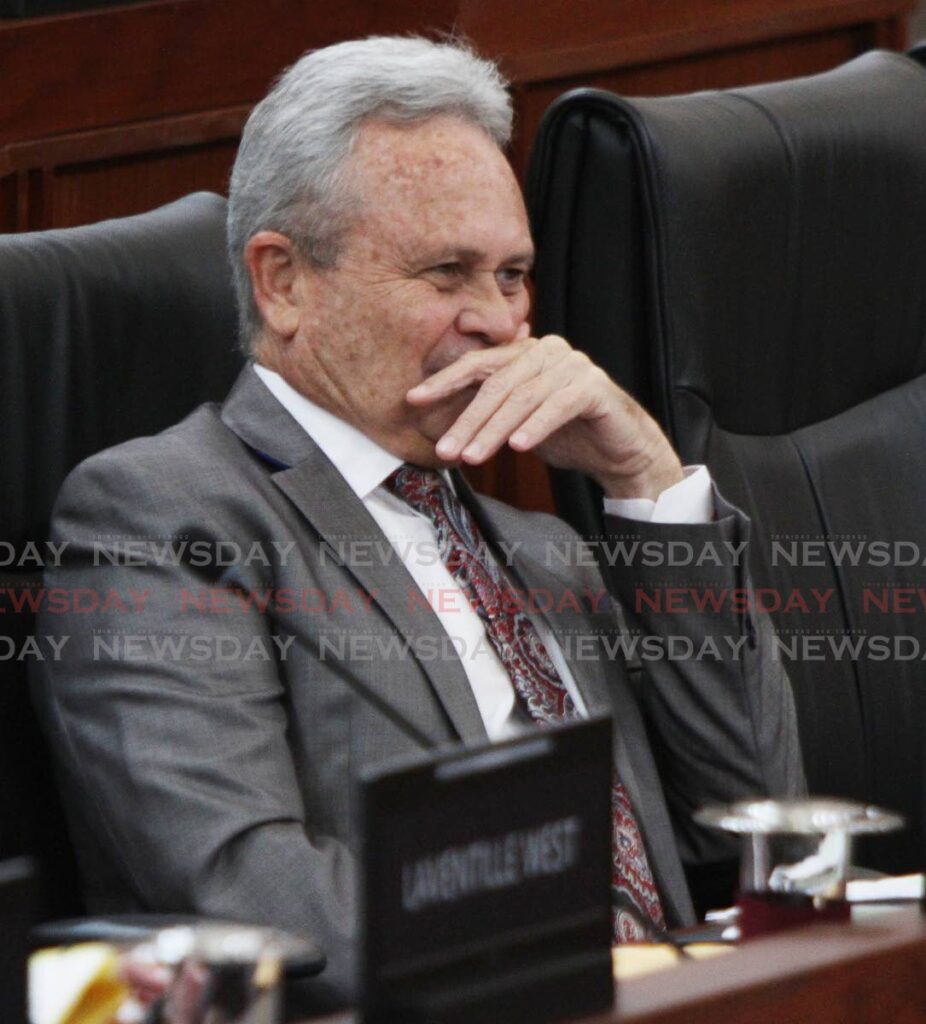Imbert: Government working to remove EU blacklist status

Finance Minister Colm Imbert said there are three main reasons TT remains listed by the European Union as a non-co-operative jurisdiction for tax purposes. He said government is working on addressing these issues in 2023.
Imbert was responding to an urgent question from Naparima MP Rodney Charles in Parliament on Friday.
Charles wanted to know why TT was still listed as non-co-operative even though the Opposition supported legislation to remove TT from the blacklist.
Imbert said the main reason TT was still on the blacklist was as a result of non-compliant Global Forum rating under the exchange of information on request and the automatic exchange of information standards. He said TT had enacted four key pieces of legislation, namely the Companies (Amendment) Act, the Income Tax (Amendment) Act, the Mutual Administrative in Tax Matters Act, and the Tax Information Exchange Agreement, to address these issues in 2019 and 2020.
He said the Global Forum reviewed the legislation and came up with 23 additional recommendations to make the legal framework more robust.
“TT is currently involved in an intensive technical assistance programme with the Global Forum to ensure that the country has made the necessary legislative, administrative and operational improvements to undergo its Phase II tier review. Through the ongoing work of the technical assistance programme, TT is in the process of finalising draft legislation that will comprehensively address the outstanding issues identified for exchange of information on request and the automatic exchange of information.
“In terms of the administrative and operational dimensions, the TT competent authority, the Board of Inland Revenue is in the process of strengthening that organisation’s confidentiality and data safeguards and exchange of information functions and processes. Once all legislative issues are addressed, TT will submit its application to become a party to the multi-lateral convention and will be able to take full advantage of exchanging information with the current 146 signatories.”
Imbert said the second reason TT was on the list was that the Organisation for Economic Co-operation and Development (OECD) had said TT possessed a harmful tax regime because of what was seen as a ring fenced freezone regime. He said TT has administratively closed off the regime to new entrants in January 2019 and the Special Economic Zones Act 2021 was partially proclaimed in January 2022. He said draft SEZ are currently being finalised by the Ministry of Trade and Industry.
The final reason TT remains on the blacklist is due to deficiencies in its country to country reporting status.
“According to our 2022 peer review, TT was found to have deficiencies in our legal and administrative frameworks for the exchange of information and the use of country by country reports. TT has accordingly made a commitment to the EU to fully implement country by country reporting by 2023 and for this to be reflected in the 2023 peer review report. In so doing, TT is currently finalising draft country by country reporting legislation for enactment in 2023.”
Asked by Charles why these issues were not identified before the four pieces of legislation were brought to Parliament, Imbert said “The legislation we brought to Parliament was identified to target the known deficiencies at the time. Subsequently, they’ve given us 23 additional recommendations. This is the world we live in and we have to swim in it.”
Charles asked why other Caribbean countries had been able to identify and enact legislation and come off the blacklist, to which Imbert replied, “Fortunately for them, those countries do not have an Opposition UNC that refuses to co-operate and refuses to pass special majority legislation.”
Mayaro MP Rushton Paray asked if Imbert was aware of the impact on the local tax industry based on the Tax Haven Act passed in the German Parliament for EU blacklisted countries. Imbert said he was up to date.
“As recently as a couple of weeks ago, I participated in a virtual meeting with the lead personnel in the Global Forum. We are also in constant contact with the EU Ambassador here in TT, who is assisting us. In fact, an EU delegation came to TT specifically to discuss this and other matters and therefore we are abreast of all current developments.”
House Speaker Bridgid Annisette-George did not allow a demand from Charles that Imbert admit that the Opposition had supported the four pieces of legislation.

Comments
"Imbert: Government working to remove EU blacklist status"